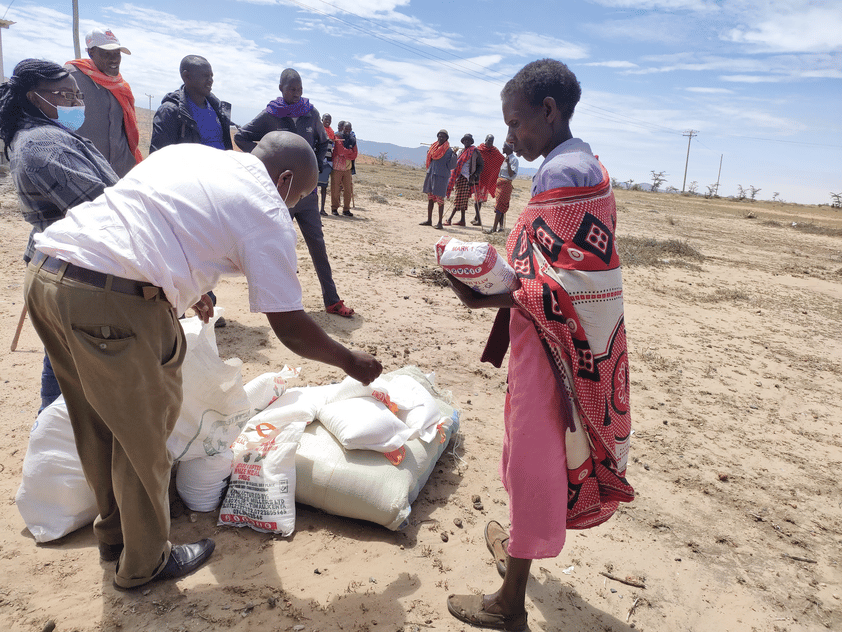
Kirralee Nicolle
11 January 2023
Feelings of hopelessness and displacement are rising in African communities impacted by catastrophic environmental change, Anglican and Episcopal representatives in Africa say.
Read more: Famine, oppression loom large as international community focuses elsewhere
Leaders said parts of Kenya were facing ongoing drought and food shortages from lack of crops and high inflation rates, while nations in the Horn of Africa were experiencing severe flooding and resulting forest decay.
Anglican Overseas Aid partner the Anglican Diocese of Mt Kenya West program coordinator Millicent Wambugu said pastureland had diminished due to lack of rain since 2020, affecting key food crops such as maize, beans and potatoes. She said many in the region who existed on subsistence farming were hard-pressed, and that able-bodied members of the community were leaving their families and the vulnerable behind to hunt animals for food. She said she hoped to see more government intervention to meet the needs of desperate families.
“The communities are getting to a point where they are asking what next,” Ms Wambugu said.
Read more: Anglican efforts in Africa weakened by Ukraine crisis
She said with the help of Anglican Overseas Aid, the church was responding to the needs of nine different communities in Kenya and implementing lunchtime feeding programs for both students and toddlers. By encouraging children to attend school, Ms Wambugu said these programs led to less child abuse in homes. She said there were signs of hope despite the difficulties.
“We’ve had quite a number of gains within the community,” Ms Wambugu said. “We’ve been able to see communities be more inclusive in terms of disability. We’ve seen women take part in most of the decision-making processes, and we’ve also seen incidences of child abuse going down.”
South Sudan Episcopal Development and Relief Fund director Light Wilson Aganwa said Anglican Overseas Aid had been providing technical assistance to the Ecumenical church and had also assisted in responding to the needs of 936 households.
Read more: Aid needed to supply food, goods, advocacy to fleeing Ukrainians
He said all 10 states in South Sudan had been either directly or indirectly affected by climate change. Mr Aganwa said northern South Sudanese communities were battling widespread flooding which had caused animals to die, people groups to be displaced and crops destroyed. He said ethnic violence had also increased due to greater crossover of warring people groups, and old growth forests were decaying from the stagnant floodwaters.
“Why don’t we start preparedness planning in terms of food security [and] climate change to prevent these problems from getting worse and to maintain a healthy climate?” he said.
Mr Aganwa said the area near the equator had been less affected and could be a good place to develop agriculture to sustain the rest of the country.
To donate to Anglican Overseas Aid and support their efforts in Kenya and South Sudan, see here.
For more faith news, follow The Melbourne Anglican on Facebook, Twitter, or subscribe to our weekly emails.






